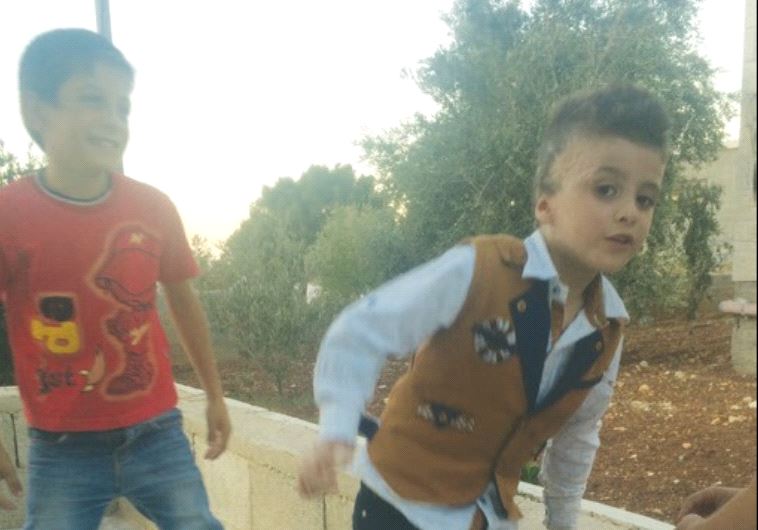A year after Duma fire bombing, Dawabsha family vows to persevere
Exactly a year ago this Sunday, suspected Jewish terrorists firebombed the Dawabsha family’s modest one-story home in the middle of the night.
 FIREBOMBING SURVIVOR Ahmad Dawabsha plays with his cousins outside their Duma home, July 2016(photo credit: ADAM RASGON)Updated:
FIREBOMBING SURVIVOR Ahmad Dawabsha plays with his cousins outside their Duma home, July 2016(photo credit: ADAM RASGON)Updated: